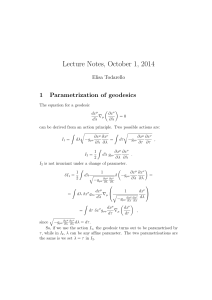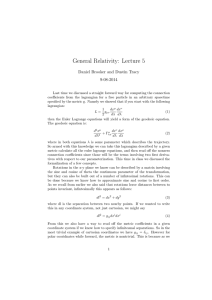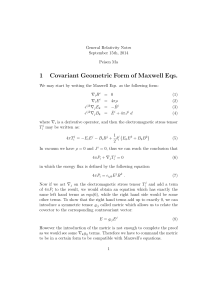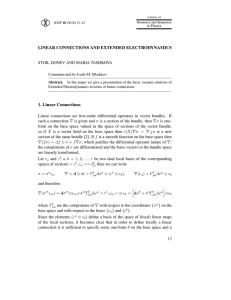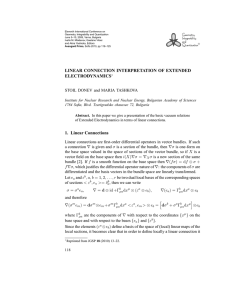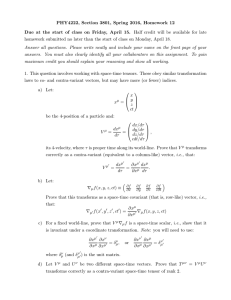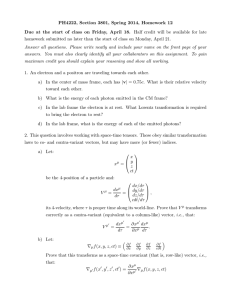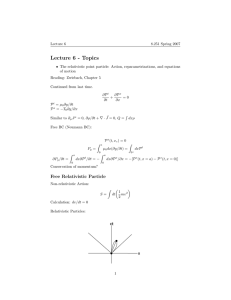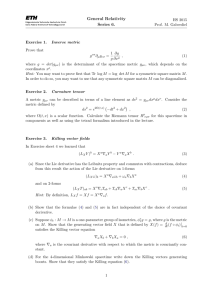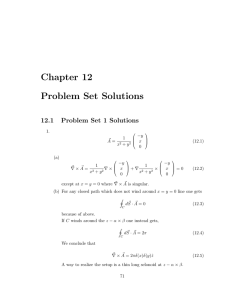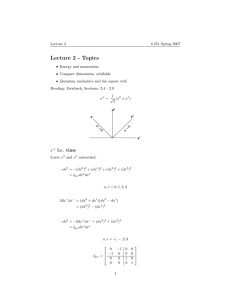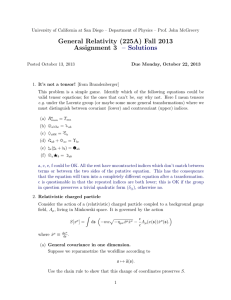Derivation of the Christoffel symbols directly from the geodesic equation
advertisement
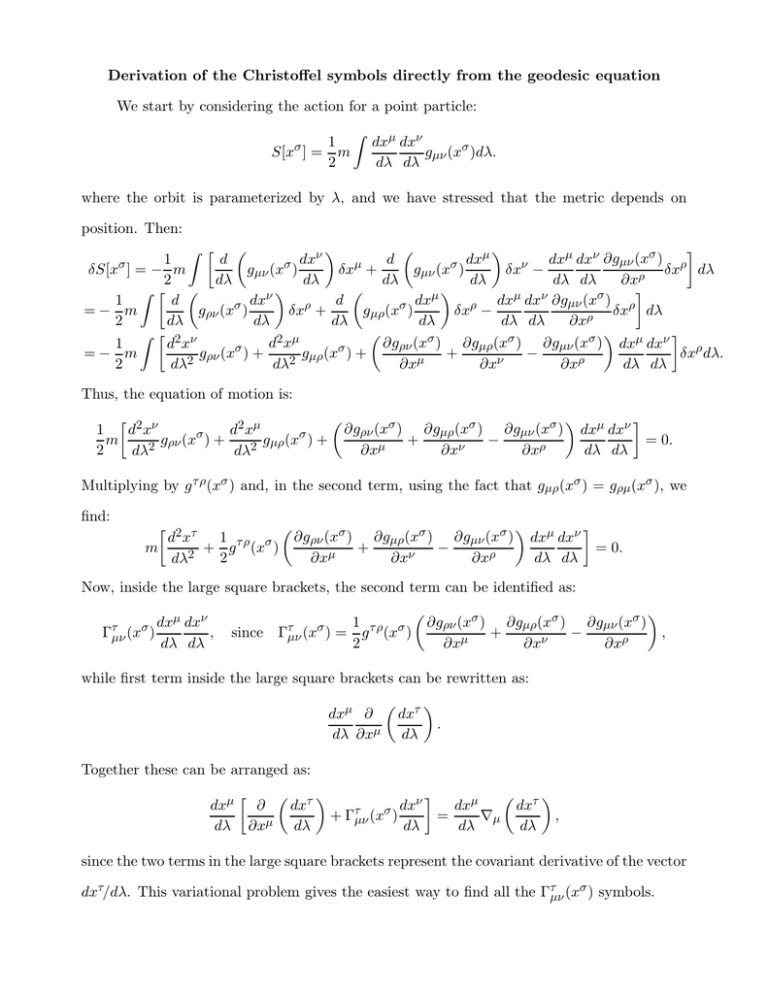
Derivation of the Christoffel symbols directly from the geodesic equation We start by considering the action for a point particle: S[xσ ] 1 = m 2 Z dxµ dxν gµν (xσ )dλ. dλ dλ where the orbit is parameterized by λ, and we have stressed that the metric depends on position. Then: Z dxν d dxµ dxµ dxν ∂gµν (xσ ) ρ d 1 σ µ σ ν gµν (x ) δx + gµν (x ) δx − δx dλ =− m 2 dλ dλ dλ dλ dλ dλ ∂xρ Z ν µ 1 d dxµ dxν ∂gµν (xσ ) ρ d σ dx ρ σ dx ρ =− m gρν (x ) δx + gµρ (x ) δx − δx dλ 2 dλ dλ dλ dλ dλ dλ ∂xρ Z 2 ν ∂gρν (xσ ) ∂gµρ (xσ ) ∂gµν (xσ ) dxµ dxν d 2 xµ 1 d x σ σ gρν (x ) + gµρ (x ) + δxρ dλ. =− m + − 2 ∂xµ ∂xν ∂xρ dλ dλ dλ2 dλ2 δS[xσ ] Thus, the equation of motion is: 2 ν ∂gρν (xσ ) ∂gµρ (xσ ) ∂gµν (xσ ) dxµ dxν d 2 xµ d x 1 σ σ gρν (x ) + gµρ (x ) + = 0. m + − 2 ∂xµ ∂xν ∂xρ dλ dλ dλ2 dλ2 Multiplying by g τ ρ (xσ ) and, in the second term, using the fact that gµρ (xσ ) = gρµ (xσ ), we find: 2 τ 1 τ ρ σ ∂gρν (xσ ) ∂gµρ (xσ ) ∂gµν (xσ ) dxµ dxν d x + g (x ) m = 0. + − 2 ∂xµ ∂xν ∂xρ dλ dλ dλ2 Now, inside the large square brackets, the second term can be identified as: dx Γτµν (xσ ) µ dxν dλ dλ , since Γτµν (xσ ) 1 τ ρ σ ∂gρν (xσ ) ∂gµρ (xσ ) ∂gµν (xσ ) = g (x ) + − , 2 ∂xµ ∂xν ∂xρ while first term inside the large square brackets can be rewritten as: dxµ ∂ dλ ∂xµ dxτ dλ . Together these can be arranged as: τ τ dxµ ∂ dxν dxµ dx dx τ σ + Γµν (x ) = , ∇µ µ dλ ∂x dλ dλ dλ dλ since the two terms in the large square brackets represent the covariant derivative of the vector dxτ/dλ. This variational problem gives the easiest way to find all the Γτµν (xσ ) symbols.
